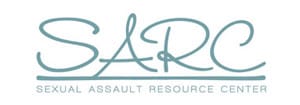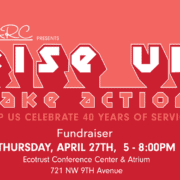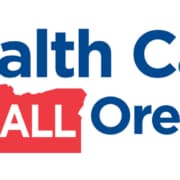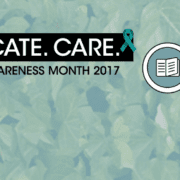40th Ruby Anniversary Fundraiser
It’s been a couple years since we’ve held a fundraiser and this year we wanted to do something special and impactful as much as possible to raise awareness and funds for SARC. We also wanted to act sooner than later because of the political and social climate we find ourselves in and because we know that SARC is losing funding, we just don’t know the extent yet. With a lot at stake for our vulnerable communities, there has been so much momentum in the social justice movements and awareness raising since election day; we certainly are no exception.
This year’s fundraiser marks SARC’s 40th Anniversary operating as a support agency for survivors of sexual assault and their loved ones first and foremost. Since its inception in 1977, it has expanded to cover anti-trafficking programs and prevention education. We’re highlighting this occasion occurring at the end of Sexual Assault Awareness Month (SAAM). The color for a 40th anniversary is ruby red, and what better theme than to have it be our ‘Ruby Anniversary Fundraiser’? We’re carrying through the red color of solidarity and invite you to wear your red out to the fundraiser.
We’ve been hard at work planning and the event is coming up this week! We wanted to be sure to thank and highlight our sponsors and donors and share the silent auction and raffle item details here. You can track updates on our other social media channels like the Facebook event page, Twitter, and Instagram, please see other posts and information there.
Listen for us to be featured on XRAY.FM’s show, ‘The Non Profit Hour’, Tuesday, airing at 1:00PM, and re-airing the following Monday morning, 6:00AM. A few of us went in to record this interview hosted by Phil Busse of the NPH show. Recording will also be available as a podcast.
Date: April 27, Thursday
Time: 5 – 8:00pm
Venue: Ecotrust
Program Schedule:
5:00 – DJ Mr. Mumu, open mingling, snacks, drinks, networking
5:45 – kick-off intro
6:00 – DJ, open, donation highlights
6:15 – Get to know SARC & Staff
7:00 – Pull a few tix
7:05 – Executive Dir., Erin Ellis
7:30 – Moody Little Sister
7:50 – Pull all tix; wrap; hand-off prizes
The silent auction will go through the end of the evening and we’ll plan on pulling raffle tix at least a couple times. You do not have to be present to win a prize and if you elect not to purchase the auction item you bid on, it goes to the next highest bidder.
 This year, Moody Little Sister, will perform at the end of the evening for us. Naomi Hooley and Rob Stroup form a Folk-Rock & Soul Duo out of Portland, Oregon, who have been touring and playing a lot of shows as of late. [insert pic] Community, nature, and the inward journey are the chorus line themes to most of the band’s songs. As a result they have been regarded as “social change agents” and “community creators”. Their debut record “Wild Places” is a soundtrack for anyone on a journey to be more authentically themselves.They’ve just announced an exciting move to New Mexico, so we’re lucky to have them play for us before their next adventure! Photo provided by Moody Little Sister.
This year, Moody Little Sister, will perform at the end of the evening for us. Naomi Hooley and Rob Stroup form a Folk-Rock & Soul Duo out of Portland, Oregon, who have been touring and playing a lot of shows as of late. [insert pic] Community, nature, and the inward journey are the chorus line themes to most of the band’s songs. As a result they have been regarded as “social change agents” and “community creators”. Their debut record “Wild Places” is a soundtrack for anyone on a journey to be more authentically themselves.They’ve just announced an exciting move to New Mexico, so we’re lucky to have them play for us before their next adventure! Photo provided by Moody Little Sister.
 We will also have a great local DJ Mr. Mumu, who plays regularly at Tilt and Valentines, to get you in the mood to donate. Lover of all types of music, he’s been working as a DJ for two decades and then some.
We will also have a great local DJ Mr. Mumu, who plays regularly at Tilt and Valentines, to get you in the mood to donate. Lover of all types of music, he’s been working as a DJ for two decades and then some.
“I have played and can play just about every event possible…from swank black tie soirees to dark and dirty rock clubs…sometimes in the same night.”
Get ready to do some dancing while donating, while he spins only vinyl for us!
This is an annual fundraiser that we hope to grow year after year, and we are so thankful for our sponsors and all donors for this year’s event. All of the auction and raffle items have been donated by artists, businesses, friends and family in our community. Please let them know you appreciate their support of SARC the next chance you get. Photo provided by DJ Mr. Mumu.
Sponsors

Enjoy these donated drinks and food

We’ll have more drinks, food, and sweets for you, we’d love to see you all there!
Silent Auction and Raffle Items showing their retail value | Items 1 -9 (silent auction)
| 1 | Blazers Print | $150 | |
| 2 | Rodinia necklace | $200 | |
| 3 | Dawn Kowalewski Photography (14X14) | $250 | |
| 4 | Artistic Bliss Portraits – 11×14 | $550 | |
| 5 | Artistic Bliss Portraits – 11×14 | $550 | |
| 6 | Private Flight Time (2-3 people) | $425 | |
| 7 | Beach House (2 nights) | $840 | |
| 8 | Women’s Group Self-defense Class | $1,500 | |
| 9 | Dunn Carney Legal Services | $1,750 | |
| 10 | Wine – Hiram | $40 | |
| 11 | Bluestar Donuts | $50 | |
| 12 | Bluestar Donuts | $50 | |
| 13 | Domaine Drouhin Wine | $50 | |
| 14 | Wine | $50 | |
| 15 | Wine – Hiram | $60 | |
| 16 | Rodinia ‘PDX’ necklace | $52 | |
| 17 | City of Portland Golf passes 2×18 holes | $90 | |
| 18 | Widmer Brothers Beer Pack | $100 | |
| 19 | Yoga Shala – Classes 10-pack | $110 | |
| 20 | Laika Studios – Kubo Gift Set | $125 | |
| 21 | Ascension Fitness (pkg w/ Dr. Ni’s) | $127 | |
| 22 | Cleobella Dress | $150 | |
| 23 | Aquarium Pkg | $199 | |
| 24 | Cleobella Dress | $250 | |
| 25 | Folly Shopping party | $250 | |
| 26 | Eastside Distilling Party | $250 | |
| 27 | Garden Party for 6 | $300 | |
| 28 | Cleobella Bag | $400 | |
| 29 | Cleobella Bag | $400 | |
| 30 | Mexico Vacation Rental (6 nights) | $2,100 *Special raffle | |
| 31 | Pilates Central PDX (2 sessions) | $140 | |
| 32 | Pilates Central PDX (2 sessions) | $140 | |
| 33 | Andina Restaurant GC | $150 | |
| 34 | The Bite of Oregon tix 2 | $150 | |
| 35 | Warrior Flow – Spring Challenge | $175 | |











 our country’s ability to address issues around sexual assault, intimate partner violence, domestic violence, and stalking. Thanks to continued bipartisan reauthorizations, countless numbers of services and resources for survivors across the country are made possible through VAWA. Eliminating or even reducing VAWA’s federal funds would directly reduce resources for and the safety of survivors.
our country’s ability to address issues around sexual assault, intimate partner violence, domestic violence, and stalking. Thanks to continued bipartisan reauthorizations, countless numbers of services and resources for survivors across the country are made possible through VAWA. Eliminating or even reducing VAWA’s federal funds would directly reduce resources for and the safety of survivors.

 SARC welcomes Randali deSantos as our new LatinX Case Manager!
SARC welcomes Randali deSantos as our new LatinX Case Manager!